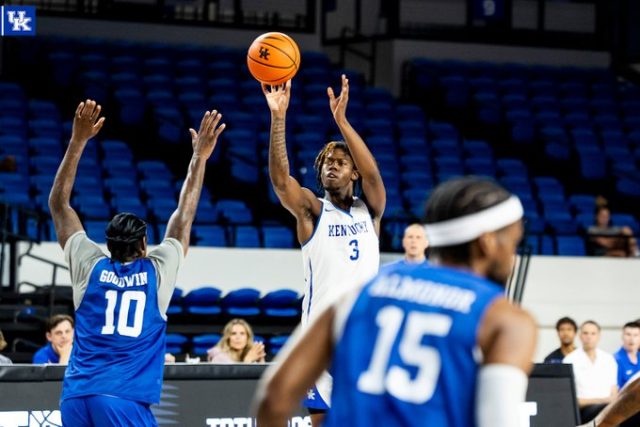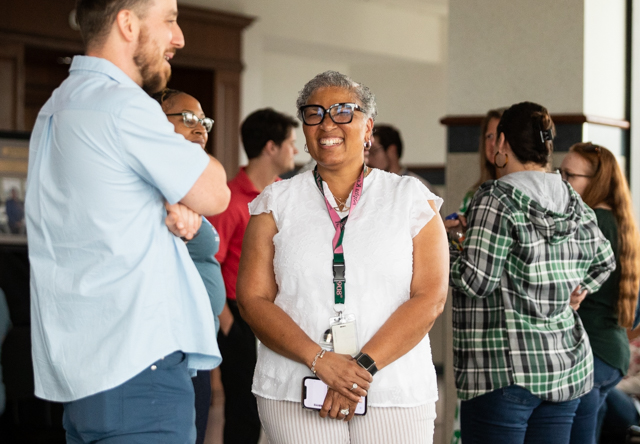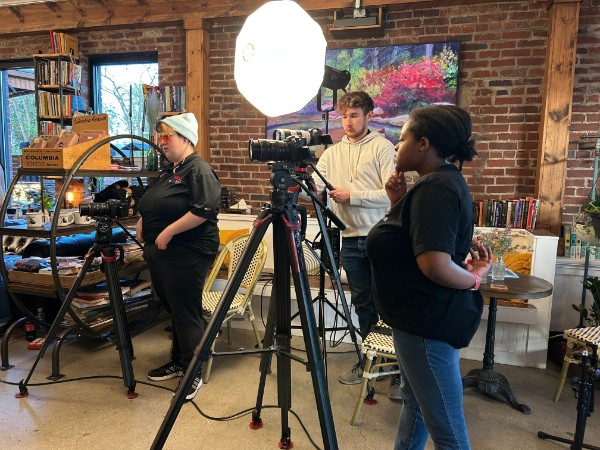Jim Obergefell: The ‘accidental activist’ one year later
Published 11:28 am Thursday, June 9, 2016
Jim Obergefell became the face of last year’s Supreme Court case Obergefell v. Hodges, which resulted in a ruling that legalized same-sex marriage in all 50 states. He sat down for a Facebook Live chat almost a year after the June 24 ruling to talk what it was like to be in the courtroom on “decision day,” the vicious backlash against the LGBT community since then, as well as the publication of “Love Wins: The Lovers and Lawyers Who Fought the Landmark Case for Marriage Equality,” written with Washington Post reporter Debbie Cenziper.
The conversation has been edited and condensed.
Trending
Petrow: Could you introduce yourself to America? Could you also tell us about your late husband John Arthur?
Obergefell: I was the named plaintiff in the Supreme Court case Obergefell v. Hodges, which brought nationwide marriage equality to the United States. I wound up in this spot as an accidental activist, which is to say, because of circumstance. I fell in love with John and we were together for over 20 years. In the summer of 2013 he was bedridden and dying of ALS. So when the Windsor decision came out that struck down part of the Defense of Marriage Act, I proposed. All we wanted was simply to get married and to live out John’s remaining days as husband and husband.
Petrow: You were together in every way other than legally – you planned vacations and for retirement together. Why did being married matter?
Obergefell: We wanted to make our commitment, our promises to each other, public and legal – and we wanted to participate in the institution of marriage, which so many people across the country have been able to do.
Petrow: Take us back to when the court ruled last June?
Obergefell: Sitting in that courtroom I jumped in my seat a little bit and grabbed the hands of my friends next to me when the Chief Justice (Roberts) said Justice (Anthony) Kennedy would read the first decision. Kennedy started reading the decision and my initial thought was “We won!” Then I thought, “Maybe, we won.” Finally, it sunk in that they had ruled in our favor and I just burst into tears. For me, I missed John more in that moment than any time since he died, but I also finally felt more of this wonderful sense of being a part of “We the people” – finally feeling more like a full American. I felt that John could finally, truly rest in peace. That was a gift to me.
Trending
Petrow: Were you aware of your role in history that day?
Obergefell: I still find that so odd. I understand that yes, this is a landmark case and Obergefell v. Hodges will be in history books, law students will learn about it. But I still don’t feel that it’s fully sunk in. Even today when I hear a reference to Obergefell, I have to pinch myself or remind myself that I’m that Obergefell.
Petrow: What has surprised you the most this past year and what do you think about the backlash that has occurred especially when it comes to so-called ‘bathroom bills,” which really aren’t about that at all.
Obergefell: We all knew back on decision day that there’d be a backlash. I personally never expected it to be quite as vicious as it has been. Much of what has happened with these (so-called) religious freedom and bathroom bills is that it’s all about trying to do the “separate but equal” thing once again. It didn’t work in the past, so why should it work now? For me the really distressing part of this is how the transgender community has been targeted. It all comes down to fear of the unknown. So that’s part of what I’ve done in the past year, talking, speaking up and educating people because that’s how we change hearts and minds.
Petrow: Tell me more about what you mean.
Obergefell: I can respond from my own perspective. I’ve been part of the LGBTQ community since I came out when I was 26. … Until about a year ago, I had no transgender friends – at least I didn’t know anyone who was transgender. Since then I have learned so much. I have become friends with many transgender people and that has opened my eyes, it’s changed my perspective. I’ve changed because I’ve met them.
Petrow: What have you been doing in the year since the decision?
Obergefell: I’ve been doing a lot of speaking engagements, working with various organizations like the Human Rights Campaign, Equality Ohio, Equality Florida, Equality NC, and the ACLU. I’ve gotten involved fighting LGBTQ homelessness in greater Cincinnati and I’ve been writing this book. It’s been a vastly different life than I ever expected to have. It’s been fun. It’s been tiring. It’s been overwhelming. But I find that because I’m still fighting for something important, something bigger than I am, all that is worth it.
—
Video: Steven Petrow sits down with Jim Obergefell, the main plaintiff in the landmark Supreme Court case Obergefell v. Hodges, and talks about gay marriage, equality for the transgender community and his late husband John. (By Erin Patrick O’Connor / The Washington Post)
URL:
http://wapo.st/1ZABFhA
Embed code:
civilities







